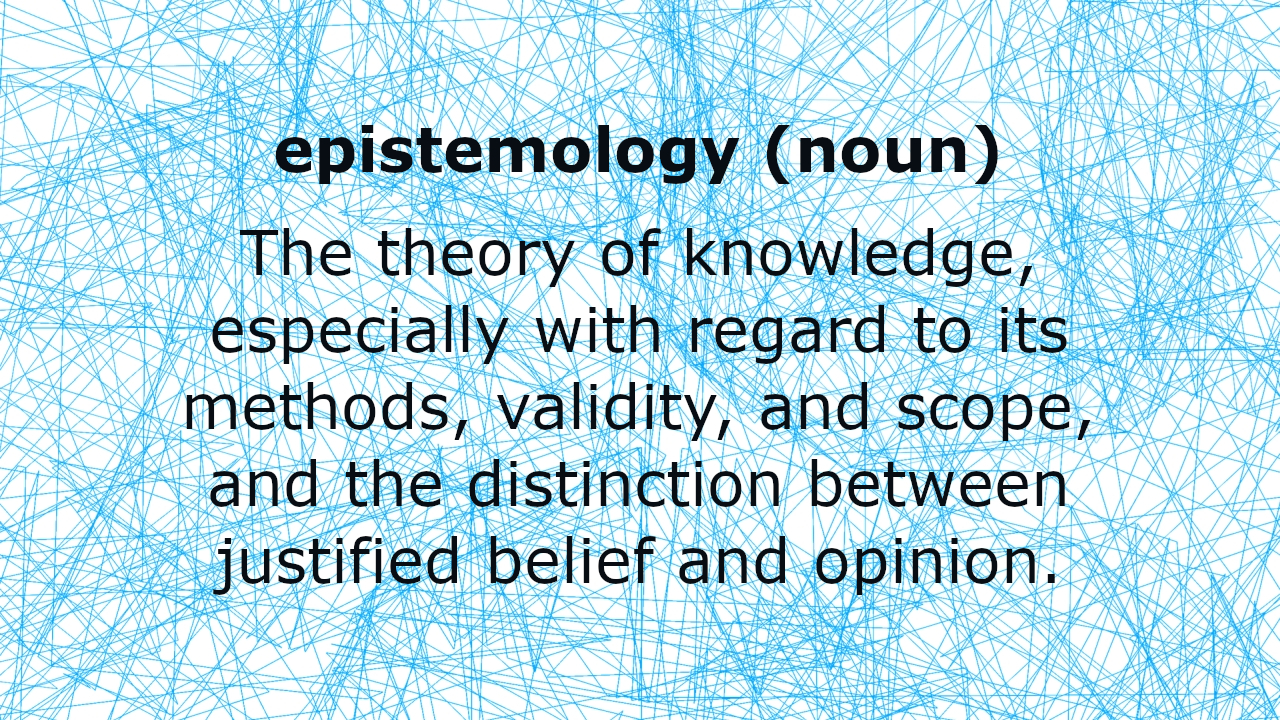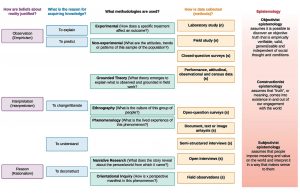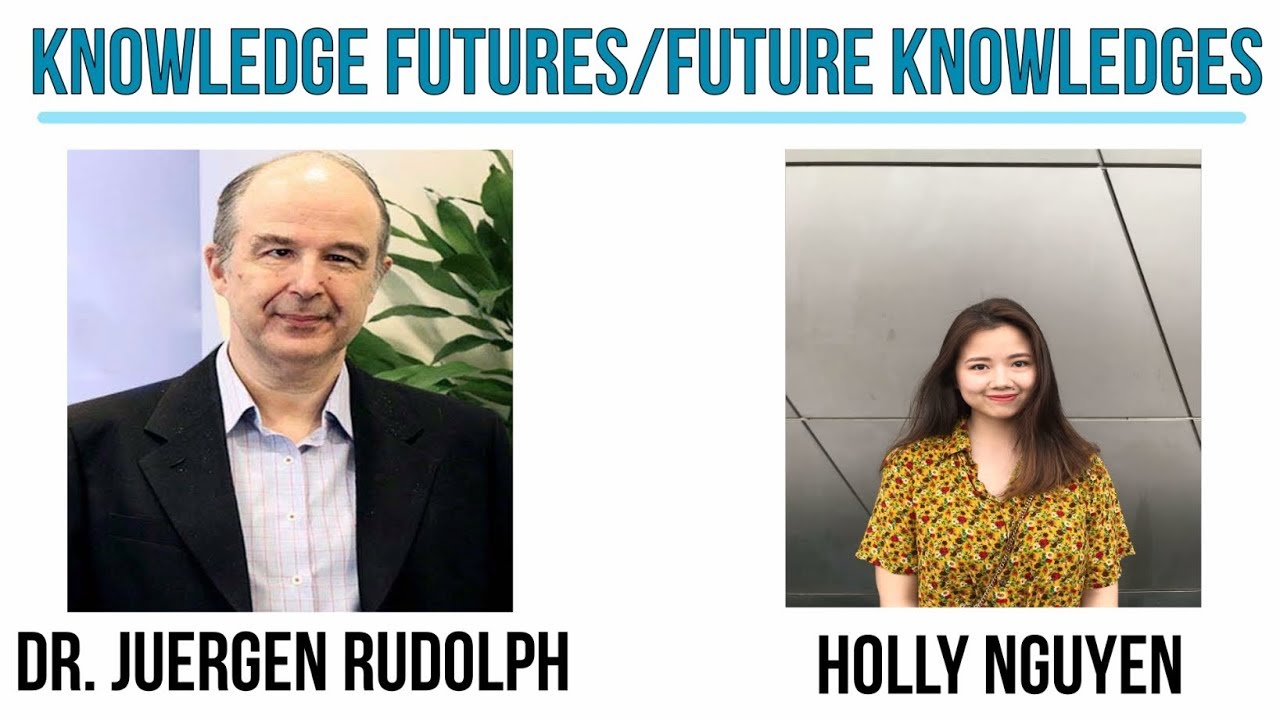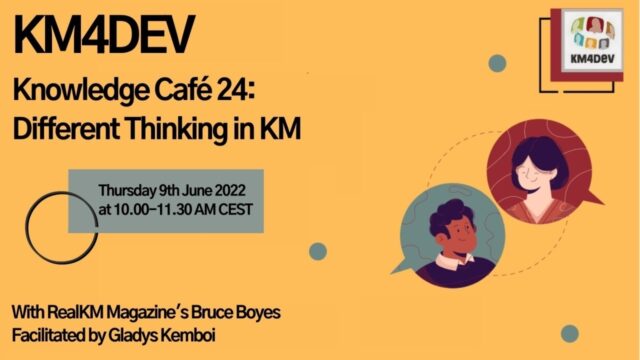
Five questions to understand epistemology and its influence on integrative research processes
By Katie Moon, Chris Cvitanovic, Deborah A. Blackman, Ivan R. Scales and Nicola K. Browne. Originally published on the Integration and Implementation Insights blog.
How can we reduce the barriers to successful integrative research processes? In particular, how can we understand the different epistemologies that underpin knowledge?
Epistemology is the branch of philosophy that asks: how do we know what we know? It is concerned with how we can ensure that knowledge is both adequate and legitimate, by considering:
a. what constitutes a knowledge claim, including the assumptions that are made
b. how knowledge is produced or acquired
c. how the extent of its applicability can be determined.
Accordingly, understanding and accounting for different epistemologies is important for developing solutions to contemporary challenges where a range of disciplines and practices converge, each with their own methods and assumptions regarding the adequacy and legitimacy of knowledge.
To help researchers understand different epistemologies and their influence on integrative research practices we have come up with five questions they can ask themselves (and one another).
Question 1: What Do We Seek to Create Knowledge About?
Exploratory questions:
- What is it that the researcher seeks to create or discover knowledge about?
- Why and how do they determine what to study?
- What are the objects of study – are they tangible or intangible?
For example, the natural sciences focus on the biophysical dimensions of systems, where the object of study is usually tangible. The focus on physical objects stems from the aims of understanding and describing natural phenomena, which is typically achieved through observation and experimentation focused on establishing a high level of validity and reliability in the knowledge.
In contrast, the social sciences focus on human dimensions of the system. These dimensions can be physical and observable (eg., a person’s behaviour), and non-physical and non-observable (eg., a person’s beliefs).
Question 2: How Do We Create Knowledge in Integrated Research Sciences?
Exploratory questions:
- What beliefs underpin the research?
- How have the researchers sought to justify their beliefs as true?
It can be helpful to think, quite broadly, about knowledge as a ‘justified, true belief,’ that is, the way in which an individual or group ‘knows’ something is true. Yet, people can construct the meaning of the same object or phenomenon in different ways on the basis of their cultural, historical and social perspectives, and interactions with human communities (eg., their social network). It therefore becomes necessary to consider how different beliefs are justified (eg., via reason, emotion, perception and language) and accepted as knowledge.
Question 3: Who Accepts Knowledge as ‘True’ and How?
Exploratory questions:
- What methods of data collection have been used? How we they justified?
- What sampling strategies were adopted and why?
- How did the researchers identify and reflect bias in designing and implementing the research?
- Who determines whether the methods, results and truth claims are valid?
- What criteria were used to assess the quality of the truth claims?
Generally speaking, for knowledge to be ‘accepted’ (ie., justified, true beliefs), an epistemic community is required. An epistemic community is a group of people who are considered experts in a knowledge domain, for example, within a discipline (eg., physics, ecology, anthropology), industry (eg., aquaculture, diving tourism) or cultural group (eg., religious, indigenous). The important role of epistemology here is asking us to be involved in an ongoing examination of ‘what I know’, ‘how I know it’ and ‘how it corresponds (or not) with the knowledge of others’. This last question is particularly important in integrated research, where different knowledge sets often exist.
By recognising that (groups of) people create or discover and assess knowledge in a variety of ways, we can begin to open our minds to multiple ways of knowing, all of which can be validated in different ways within and across defined epistemic communities.
Question 4: How Do We Determine the Epistemology Underpinning the Research Processes?
Exploratory questions:
- What assumptions about reality underpin the research?
- What methodologies and methods were used?
- How was the data analysed and interpreted?
We have developed a simple heuristic device to assist in understanding the epistemology of integrated research and what it means in terms of research practice and outcomes (see figure below). The intention here is not to be comprehensive, but to provide a simple map of how to get a sense of where researchers’ assumptions might lie in relation to how they have sought to create knowledge.

Question 5: What Are the Implications of Epistemology for Applied Integrated Research?
Exploratory questions:
- In what ways could the data be applied (eg., can it be generalised to the population or is it context- or site- specific)?
- How were different stakeholders engaged in the research process?
- How were marginalised groups considered and engaged?
Two particularly important benefits arise from understanding the role of epistemology in the application of integrated research:
- an understanding of epistemology can increase our awareness of the partiality of our knowledge, which can only ever be provisional, qualified and even uncertain due to the nature of research questions and designs that only focus on a part of the system
- an understanding of epistemology provides opportunities to consider power relations in research and practice. Academic knowledge is only one type of knowledge, yet it is often privileged above others, such as Indigenous, experiential and cultural knowledge.
Concluding questions
What is the dominant epistemology of your research practice, and how might it differ from that of others? What methods have you used to account for differences in assumptions of research team members? How have you sought and and worked with different stakeholders to share knowledge?
To find out more:
Moon, K., Cvitanovic, C., Blackman, D. A., Scales, I. R. and Browne, N. K. (2021). Five questions to understand epistemology and its influence on integrative marine research. Frontiers in Marine Science, 8, 173. (Online – open access): https://www.frontiersin.org/articles/10.3389/fmars.2021.574158/full
Biographies:
 |
Katie Moon PhD is a senior lecturer in the Public Service Research Group, School of Business at the University of New South Wales, Canberra, Australia where she focuses on areas of policy implementation and stewardship. She is also affiliated with the Centre for Ecosystem Science. Her research focuses on the interactions between people and nature, examining how people make decisions and why. She applies different and novel combinations of methods to increase understanding of socio-ecological systems, seeking different types of knowledge, experiences, perceptions and interpretations. |
 |
Chris Cvitanovic PhD is a transdisciplinary marine scientist in the Centre for the Public Awareness of Science at The Australian National University in Canberra. His research is focused on improving the relationship between science, policy and practice to enable evidence-informed decision-making for sustainable ocean futures. |
 |
Deborah A. Blackman PhD is head of School and professor in Public Sector Management Strategy, School of Business at the University of New South Wales, Canberra, Australia. Her research interests include public sector policy implementation, systems level change, organisational learning, soft knowledge management, organisational effectiveness, psychological contract and governance. She researches knowledge transfer in a range of applied, real world contexts. The common theme of her work is developing effective knowledge acquisition and transfer in order to improve organisational effectiveness. |
 |
Ivan R. Scales PhD is a fellow and lecturer in Human Geography at St Catharine’s College, University of Cambridge in the United Kingdom. His interests lie in applying interdisciplinary approaches to understanding and tackling issues such as tropical deforestation, biodiversity conservation, and food security. |
 |
Nicola K. Browne PhD is a senior research fellow in the School of Molecular and Life Sciences at Curtin University, Perth, Australia. Her main areas of research include coral reef ecology and conservation, and coastal carbonate landforms. She is currently working with experts from a range of disciplines to develop an ecological model to improve understanding of climate change impacts on the long-term stability of coral reefs and associated carbonate landforms (eg., islands). |
Article source: Five questions to understand epistemology and its influence on integrative research processes.
Header image: Created from Gerd Altmann on Pixabay and Lexico, CC BY-SA 4.0.






